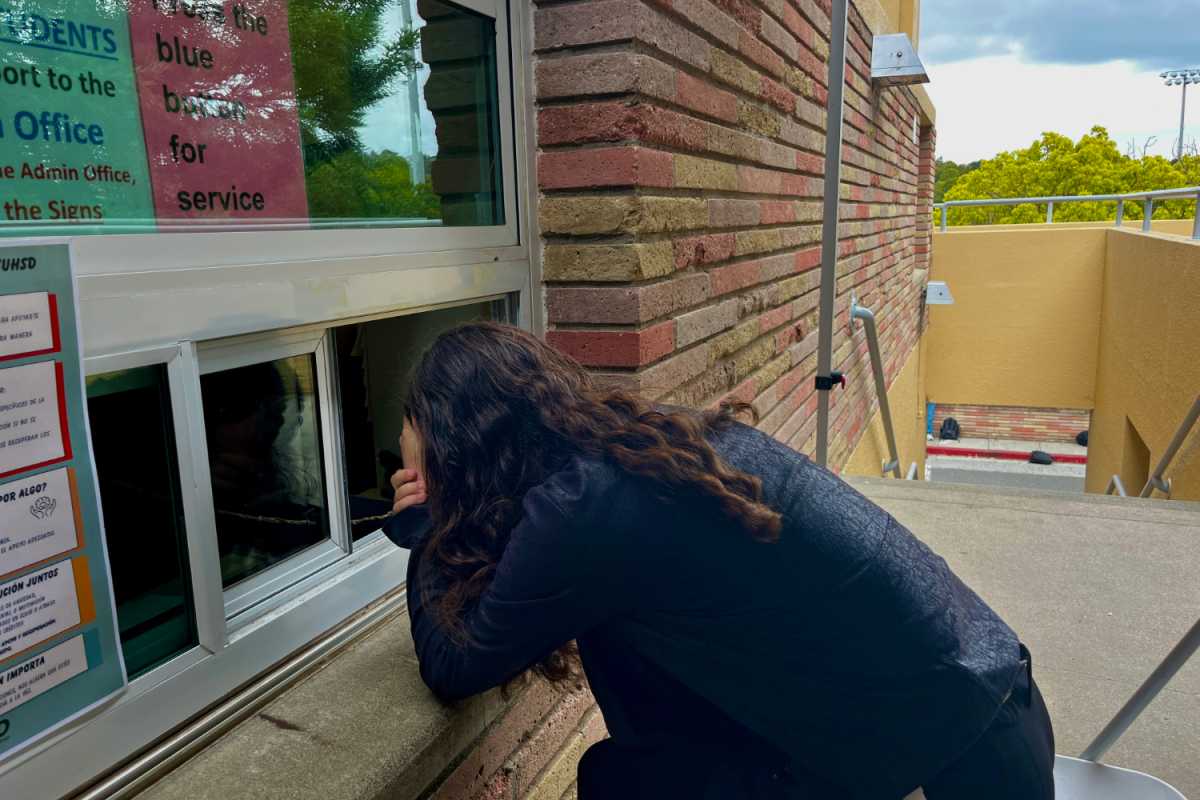Bill currently under discussion in Missouri Senate is similar in content to Florida’s “Don’t Say Gay” legislation
Samantha Haney
A proposed Missouri bill mimics Florida “Don’t Say Gay” bill, barring teachers from discussing sexuality and gender identity.
March 31, 2023
The introduction of Florida’s “Don’t Say Gay” bill was followed by school walkouts and protests. However, Missouri has recently begun discussing a similar bill that has been dubbed by news outlets as going farther than Florida’s.
The bill, introduced by Republican Senator Mike Moon, is titled “The Vulnerable Child Compassion and Protection Act” and sets the following guidelines for Missouri Schools:
Counselor Annie Tichacek believes the bill would have a multitude of harmful effects on LGBTQ+ youth in schools.
“This bill would essentially out youths to their parents, and if you don’t have a supportive person at home, then who do you have?” Tichacek said.
Beyond simply creating potentially harmful situations for youth, Tichacek questions the reasoning behind the bill.
“There’s no evidence supporting the fact that [the bill] would be helpful. It’s just not best practice, and that’s what it comes down to.”
Tichacek, along with the other Lafayette counselors, is a licensed mental health professional as outlined in the bill. However, the need for parent permission to hold discussions, and the 24-hour turnaround time to relay information to parents raise concerns regarding student safety.
“One could argue that this could open up the conversation [about sexuality] at home, but that’s not the intention behind the bill and it’s not statistically likely,” Tichacek said “It has to be the self-determination of the person to come out to somebody, it’s not up to anybody else to decide that, I don’t care how old they are.”
Some LGBTQ+ students at Lafayette have also expressed concerns with the bill. Senior Katie Caudle, a lesbian who has identified as a member of the LGBTQ+ community for six years, agrees with Tichacek’s worries.
“I think there would almost definitely be emotional effects for students, and in even worse cases, you would have to think about physical harm that could come to them,” Caudle said.
Caudle has benefitted from talking to teachers about their sexual identity.
“The first time I came out to a teacher was in seventh grade, she just assured me that it was ok and that she supported me, and it just made me feel normal and accepted,” Caudle said.
Caudle struggles with being open about her sexuality to this day, her girlfriend even recalls times in the halls when she prefers to not hold hands for fear of judgment or worse.
“I get scared of people seeing us together and being hateful towards us or looking at us differently. It makes me worry about my safety at school because stuff happens all the time to people like me, so what would make this the exception?” Caudle said.
Caudle is not the only one who has expressed concerns surrounding the bill. Senior Mackenna Glazer, a lesbian who has identified as a member of the LGBTQ+ community for four years, never really talked to teachers while finding her identity.
“By the time I actually told teachers, I had no personal qualms [with my sexuality],” Glazer said.
Although she did not speak to teachers as a means of support while understanding herself, Glazer takes comfort in knowing that those support systems are there if she should ever need them.
“I feel so lucky to be a high schooler in a time when it’s ok to be gay, but as I’ve come to know more hateful stuff happening in our community, I’ve become more scared to be open about it,” Glazer said.
In terms of the younger groups that this bill would affect, Glazer thinks that barring the sexuality discussion would do nothing but further stigmatize LGBTQ+ identities.
“If children don’t see or talk about [LGBTQ+ topics] they’re going to struggle a lot more with acceptance and understanding,” Glazer said.
However, junior Gabe Runge agrees with the bill.
“Teachers have a lot of influence on students. If they say certain things, it can have a heavy influence on students and affect how students think. Students should be thinking what they want, not what their superior wants,” Runge said.
Runge believes talk about sexuality should stay strictly between parents and students.
“I don’t think teachers should be able to force their views on students,” Runge said. “[The conversation] should stay between parents and kids.”
Although the bill passed through the Missouri Senate Education and Workforce Development Committee Feb. 14, 2023, further discussion in the full Missouri Senate has not been scheduled.
This story was originally published on The Lancer Feed on March 30, 2023.




































